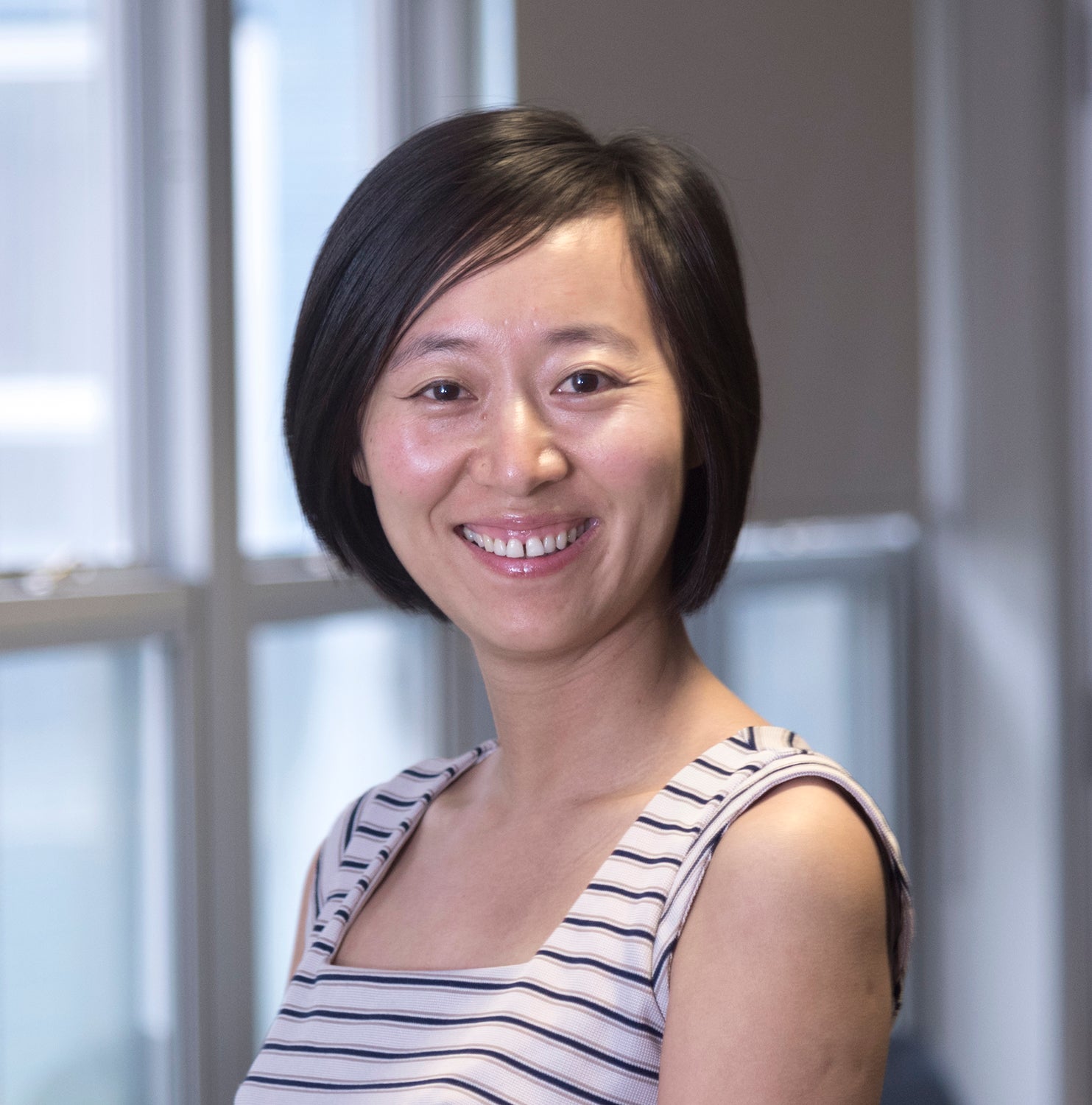KINGSTON, R.I., —May 11, 2017—Learning a language with thousands of characters might seem like a daunting task, but Xiaoyan Hu is a pro at calming nerves.
The University of Rhode Island Chinese lecturer uses social media, videos, technology and even acting to help students conquer the Chinese language—and have fun doing it.
Her enthusiasm for teaching is one of the reasons she recently won the Teacher of the Year Award from the Rhode Island Foreign Language Association.
“Xiaoyan Hu exemplifies the qualities of a 21st-century language educator through her personalized, results-oriented, real-world approach to exciting students about learning Chinese language and culture,” says Sarah Steverman, association president. “Her students are motivated by future personal and career opportunities she presents to them on a daily basis.”
Chinese is one of the world’s oldest surviving languages. College-educated Chinese people know about 8,000 characters, although knowledge of only 2,000 to 3,000 characters is needed to read a newspaper. Hu strives to teach her students 4,000 characters by the end of the fourth year of study.
“That may seem like an enormous amount to master, but it’s manageable with the proper instruction,” says Hu, 33, of Wakefield. “I try to make learning Chinese fascinating, enjoyable and accessible. It’s much easier than people think.”
As a girl in a small village in Hunan province, Hu read everything she could get her hands on. Her mother and father, who never went to college, spent “every extra cent” on books, textbooks and after-school activities, including painting, swimming and singing.
At 17, she took a national college entrance exam that determined her fate: She would study how to teach Chinese as a foreign language. She earned her master’s degree at Zhejiang University, where she taught Chinese to international students for six years.
Hu joined URI six years ago to teach summer classes in Chinese on the Kingston campus. She loved it so much she stayed. For two years, she taught Chinese culture and language at URI’s Confucius Institute and was hired as a lecturer at the University in 2013.
Her classes are popular, and that’s not surprising considering her teaching style. The first thing she tells students is not to be intimidated by the language—and she communicates that information in her native tongue.
“I use body language to convey meaning,” she says. “When I say ‘nihao’ I shake hands or wave, and always with a smile on my face. They figure out the meaning through my gestures.”
Chinese is a tonal language. In English, tones often indicate a mood. In Chinese, tones convey meaning. From the beginning, she emphasizes how important it is to accurately pronounce a tone. “Ma,’’ for example has a difference meaning, depending on how it’s pronounced. A flat tone means “mother” and a tone that goes from low then back to high means “horse.”
Technology is an important tool in her teaching. To learn tones, the students record their conversations and get immediate feedback from Hu. Students also use voice-activated computer software to analyze the tones and bring them to the proper level.
Social media is crucial too. Through WeChat students record or type phrases, which are sent to Hu and other students for evaluation. It’s a way to keep tech-savvy students engaged in learning the language, she says.
In her upper-level classes, she focuses more on critical thinking, encouraging students to express themselves through longer pieces. They write essays and academic papers and conduct research projects.
Students also participate in skits to hone their skills, interview Chinese students on campus and make movies in Chinese. These activities expose the students to the country’s culture as well.
As a lecturer in the much-heralded Chinese Flagship Program and in the Department of Modern and Classical Languages and Literatures, Hu teaches everything from Chinese literature to beginning Chinese. She is also academic director of URI’s Chinese Summer Immersion Program and assistant director of URI’s Chinese International Engineering Program.
“My class is enjoyable—and always spirited—but I also have high expectations for the students,” says Hu. “Chinese is a challenging language that you can definitely learn through hard work. I’ll do anything for my students, as long as they’re as excited as I am about the language.”
The future looks good. She’s working on her doctorate in education at URI and hopes to defend her dissertation next year. Her colleagues and mentors at URI are like family, supporting her academically and socially.
“I can’t believe I grew up in a small Chinese village, and now I’m teaching at this great University,” she says. “Sometimes I wonder if I’m dreaming. It’s too good to believe.”

